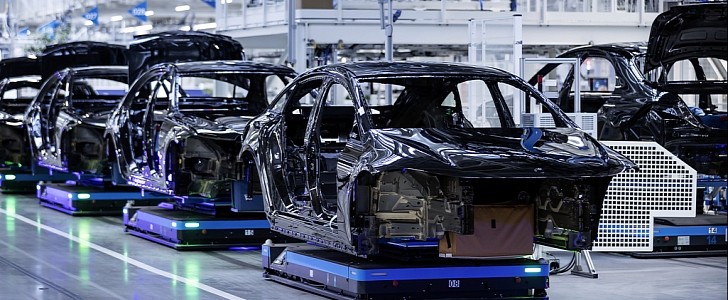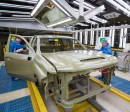The automotive industry continues to struggle with the super-constrained chip inventory, not only in the United States but pretty much all over the world.
Unfortunately, most strategies that the companies hit by the chip crunch embraced have so far either proved to be ineffective or produced little improvements. For instance, carmakers have turned to temporary production halts, shipping cars without certain systems, and even building vehicles and moving them to parking lots, all in an attempt to reduce the disruptions caused by the lack of semiconductors.
Chipmakers, on the other hand, invested in the expansion of their production capacity. While this approach worked at first, they eventually ended up struggling as well, mostly due to the rising cost of materials and the lack of equipment required for the production of chips.
The U.S. CHIPS act, however, is a breath of fresh air for both chipmakers and car manufacturers.
The very first agreement that’s benefiting from the subsidies offered by the U.S. government was announced this week, as Qualcomm and GlobalFoundries have agreed on an expansion of their production collaboration. The objective is exciting, to say the least.
The two companies want to double their semiconductor production, with the manufacturing to be handled by GlobalFoundries at facilities in the United States, Germany, France, and Singapore. The production plant in New York will also be upgraded, and given the collaboration is based on the CHIPS act, most of the expansion would take place in the United States specifically for the creation of new jobs.
The two companies have been working together on the production of semiconductors since last year, and thanks to the expanded partnership, they can focus more on chips used for 5G, Wi-Fi, and automotive technology.
In the meantime, carmakers still seem to hope that the chip crisis could ease off in the last months of the year, though tech firms seem to believe the inventory would remain constrained at least until 2023.
Chipmakers, on the other hand, invested in the expansion of their production capacity. While this approach worked at first, they eventually ended up struggling as well, mostly due to the rising cost of materials and the lack of equipment required for the production of chips.
The U.S. CHIPS act, however, is a breath of fresh air for both chipmakers and car manufacturers.
The very first agreement that’s benefiting from the subsidies offered by the U.S. government was announced this week, as Qualcomm and GlobalFoundries have agreed on an expansion of their production collaboration. The objective is exciting, to say the least.
The two companies want to double their semiconductor production, with the manufacturing to be handled by GlobalFoundries at facilities in the United States, Germany, France, and Singapore. The production plant in New York will also be upgraded, and given the collaboration is based on the CHIPS act, most of the expansion would take place in the United States specifically for the creation of new jobs.
The two companies have been working together on the production of semiconductors since last year, and thanks to the expanded partnership, they can focus more on chips used for 5G, Wi-Fi, and automotive technology.
In the meantime, carmakers still seem to hope that the chip crisis could ease off in the last months of the year, though tech firms seem to believe the inventory would remain constrained at least until 2023.






